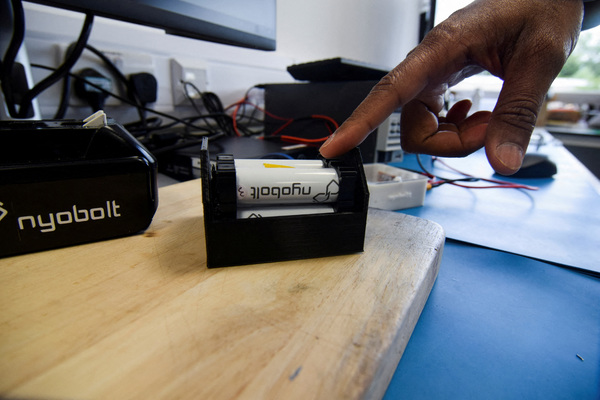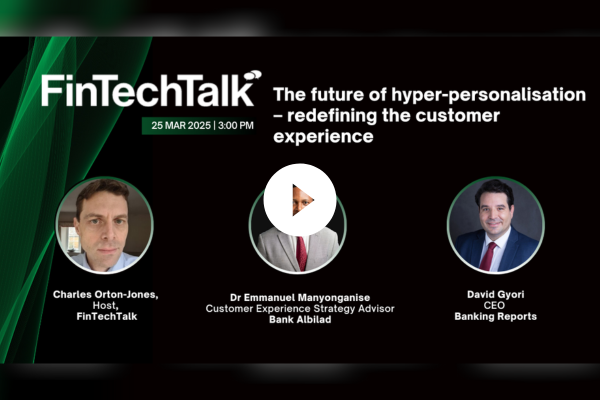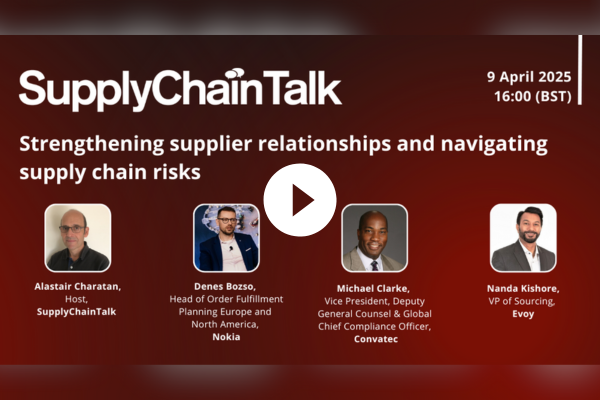The Expert View: Building World Class Digital Products and Services
Sponsored by DynatraceIn a fast-changing digital landscape, top executives reveal the cultural and technological challenges of building world-class products—and how empowering developers might be the key to staying ahead.

In today’s digital-first economy, organisations face the dual challenge of building superior products while keeping pace with rapid technological changes. Opening a Business Reporter Dinner Briefing at the House of Lords, Austin Pierson of Dynatrace related a comment from an executive at an automotive company: “We don’t just build cars anymore, we’re a software organisation.”
That’s the case for many organisations today, said Mr Pierson, a Strategic Account Executive, at Dynatrace . It’s a situation that adds complexity for people who might previously have focused only on, for example, building the best cars. Now they must be great at building the best in-car software too, which complicates their work.
Tackling that complexity is vital to building the best digital products and services. One key to that is freeing developers from distractions so that they can focus on what they do best. Attendees, who were all senior executives from a range of sectors, shared their experiences of why that is so difficult.
Aligning values
Legacy systems and processes can create increased complexity. One attendee, from a large engineering company, said his organisation often added layers of customisation to software to meet very specific needs. But when this software needed replacing, they were trapped between keeping a system no longer fit for their needs or beginning a huge migration.
Within any business, people tend to form siloes, which also become hard to work with. Some attendees said they had seen success with cross-functional teams that bring people together from different parts of the business, on a project basis. This not only brings diverse skills to the project but also helps transform culture.
Almost every attendee had struggled with driving change. It’s hard to get people to agree on a clear vision and work collectively towards it. People in different parts of the business have different incentives and goals. The result is delay or lack of focus that gives the edge to more nimble competitors.
Managing technology
The big reason why culture, legacy and siloes are such an issue is the speed of technological change. Producing world-class digital products and services means leveraging cutting edge technology, such as artificial intelligence (AI) or cloud-based solutions, which requires an organisation that encourages and supports the adoption of new systems.
AI dominated the conversation about technology. Attendees said AI is already changing the way developers work, automating tasks and giving them more time. There was uncertainty about what will happen next, however, with some saying it would replace some developers and lead to smaller teams, while others argued that it can’t replace people entirely.
One attendee, from a manufacturing company, said that his company was now using digital twins - software replicas of real-world processes - in its work and this was natural for younger engineers, who have been trained on it, but is a difficult transition for those who have been working in the business for longer.
Building relationships
People tend to become more risk-averse with age, the same attendee said, which means experienced people and organisational leaders can sometimes resist new technology simply because they are comfortable with what they know. This circles back to the initial point about culture being a challenge for developing great digital products and services.
Hicham Mabchour, Regional VP at Dynatrace, said the best developers are creative people who love to solve problems and thrive when they are innovating versus dealing with repetitive and low value-add tasks. Constraining them too much will frustrate them, and the best ones will leave. To retain their talent, organisations must give developers freedom to tackle the business’s problems – and that includes the freedom to fail.
Attendees shared various ways they have attempted to do that. Some have found success in giving developers ownership of projects and encouraging them to engage with end users. Others said that a developer experience portal can be used to bring transparency to the development process and connect developers with the wider business.
Building world-class digital products goes beyond adopting cutting-edge technology; it requires a focus on eliminating distractions and unproductive tasks that prevent developers from doing their best work. When developers are bogged down with repetitive, low-value activities, they can’t focus on the innovative tasks that actually drive business success.
Empowering developers with tools, streamlined processes, and a culture that supports continuous improvement is essential. The organisations that remove these barriers, allowing developers to focus on creativity and problem-solving, will set the standard for delivering quality products and services. Success in the digital age demands not just technological excellence, but also an organisational commitment to freeing up developer time and energy for innovation.

Business Reporter Team
You may also like
Related Articles
Most Viewed
Winston House, 3rd Floor, Units 306-309, 2-4 Dollis Park, London, N3 1HF
23-29 Hendon Lane, London, N3 1RT
020 8349 4363
© 2025, Lyonsdown Limited. Business Reporter® is a registered trademark of Lyonsdown Ltd. VAT registration number: 830519543





